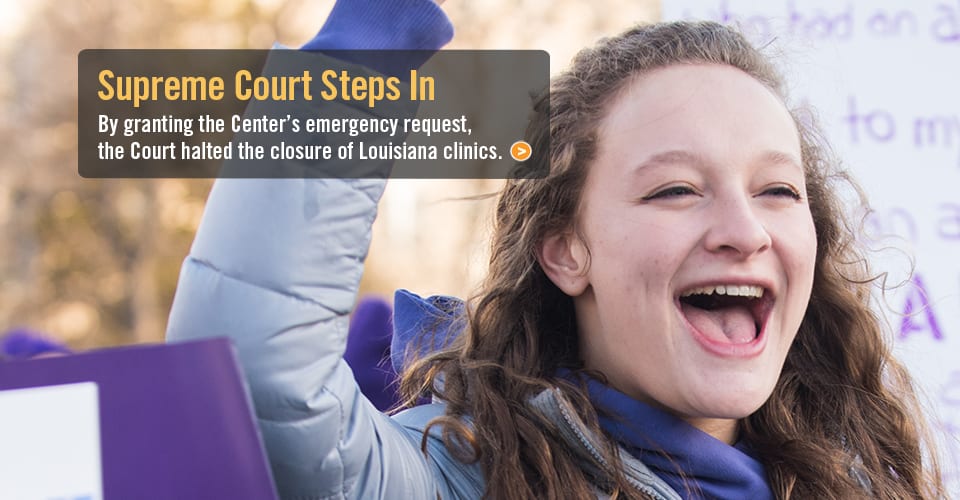Supreme Court Steps in to Protect Abortion Access in Louisiana

Tonight, the United States Supreme Court stood by its decades-long affirmation of abortion rights, blocking a Louisiana law that could have shuttered the state’s few remaining clinics. We filed an emergency request with the Court to block the law on January 25 after the U.S. Court of Appeals for the Fifth Circuit refused to rehear our case—and we applaud the Supreme Court’s decision.
The law, which was set to take effect February 8, was nearly identical to a Texas law which prohibited physicians from performing abortions unless they have admitting privileges at a local hospital. The Supreme Court struck down this law in the Center’s 2016 case Whole Woman’s Health v. Hellerstedt, finding that admitting privileges requirements serve no purpose other than to restrict access to safe and legal abortion. In his dissent from the Fifth Circuit’s refusal to rehear our case, Judge Stephen Higginson wrote that he is “unconvinced that any Justice of the Supreme Court who decided Whole Woman’s Health would endorse our opinion.” The Supreme Court clearly agreed.
Although the Court’s decision to keep the law from going into effect is good news, we must be clear: the situation in Louisiana is dire, and this stay does not change that. Since 2001, the number of abortion clinics in the state has fallen from 11 to three. If this law were to go into effect, as Judge James Dennis noted in his dissent from the Fifth Circuit’s decision, a vast majority of women seeking an abortion in Louisiana “would be unable to obtain one, clearly constituting an undue burden.”
Make no mistake—restrictions like this are steadily eroding abortion access across the country, even as Roe v. Wade still stands. States have passed more than 400 laws since 2010 as part of an orchestrated, national anti-abortion strategy intended to undermine, if not nullify, the guarantees of Roe. Louisiana is one of the worst offenders.
The three clinics left in Louisiana will stay open while we ask the Supreme Court to hear our case. The Court’s decision should be straightforward—we’re simply asking it to uphold the constitution’s protections that allow women to make their own health decisions and control their own fate.
